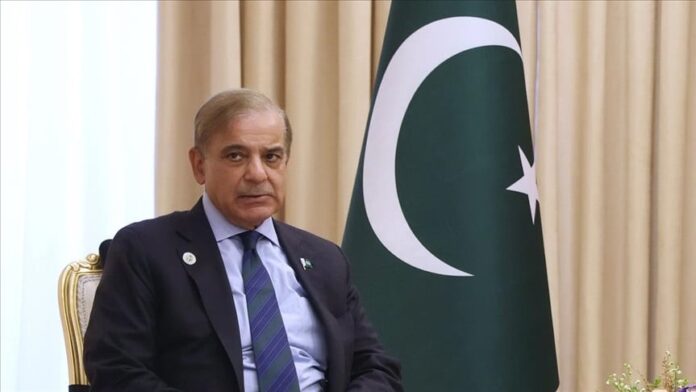Prime Minister Muhammad Shehbaz Sharif on Monday called on entrepreneurs from Pakistan and Malaysia to take the lead in driving economic growth, stressing that private enterprise — not governments — must power lasting progress.
Addressing the Pakistan-Malaysia Business and Investment Conference alongside his Malaysian counterpart Anwar Ibrahim, Shehbaz Sharif said governments could only provide frameworks and enabling environments, but “the engine of growth must be driven by the private sector.”
He underlined that enhanced business-to-business cooperation could reduce Pakistan’s dependence on external financial support. “We are currently under an IMF program that will end in two years. But if entrepreneurs from both countries step forward with joint ventures and lasting partnerships, I believe we can say goodbye to the IMF forever,” he told participants.
The prime minister noted Pakistan’s encouraging macroeconomic turnaround, citing a sharp fall in inflation from 36 percent to single digits and a reduction in policy rates from 22.5 percent to 11 percent.
At the conference, attended by business leaders from both countries, Shehbaz Sharif also announced that Pakistan would export $200 million worth of halal meat to Malaysia, pledging competitiveness in price, quality, and shipment reliability.
Highlighting Pakistan’s resource and sectoral strengths, he said the country ranked fifth in cotton and milk production and fourth in mango output. “Our mangoes are among the best in the world. With Malaysian expertise, we can set up SME-based processing units for value addition, off-season packaging, and export,” he suggested.
He pointed to the Rekodek copper and gold mine in Balochistan as a strategic opportunity for joint investment, especially amid the global energy transition. Tourism, he added, offered another major avenue: “With Malaysian tourism expertise, we can transform our northern regions — Gilgit, Baltistan, Hunza, Nanga Parbat, and K2 — into world-class destinations.”
Shehbaz Sharif further proposed leveraging Pakistan’s young, cost-effective skilled workforce to support Malaysian industries facing rising labor costs, suggesting that combined production units could export to Gulf states, Central Asia, and beyond.
On his part, Prime Minister Anwar Ibrahim called for deeper collaboration under ASEAN to broaden the region’s economic footprint. He assured Pakistani entrepreneurs of support in easing regulatory processes and even spoke a few words in Urdu, drawing warm applause from the audience.
Shehbaz praised Malaysia’s remarkable economic transformation under Anwar’s leadership, describing it as “nothing less than a miracle,” and expressed confidence that Pakistan, with similar dedication and cooperation, could achieve sustained growth and independence from international financial aid.




